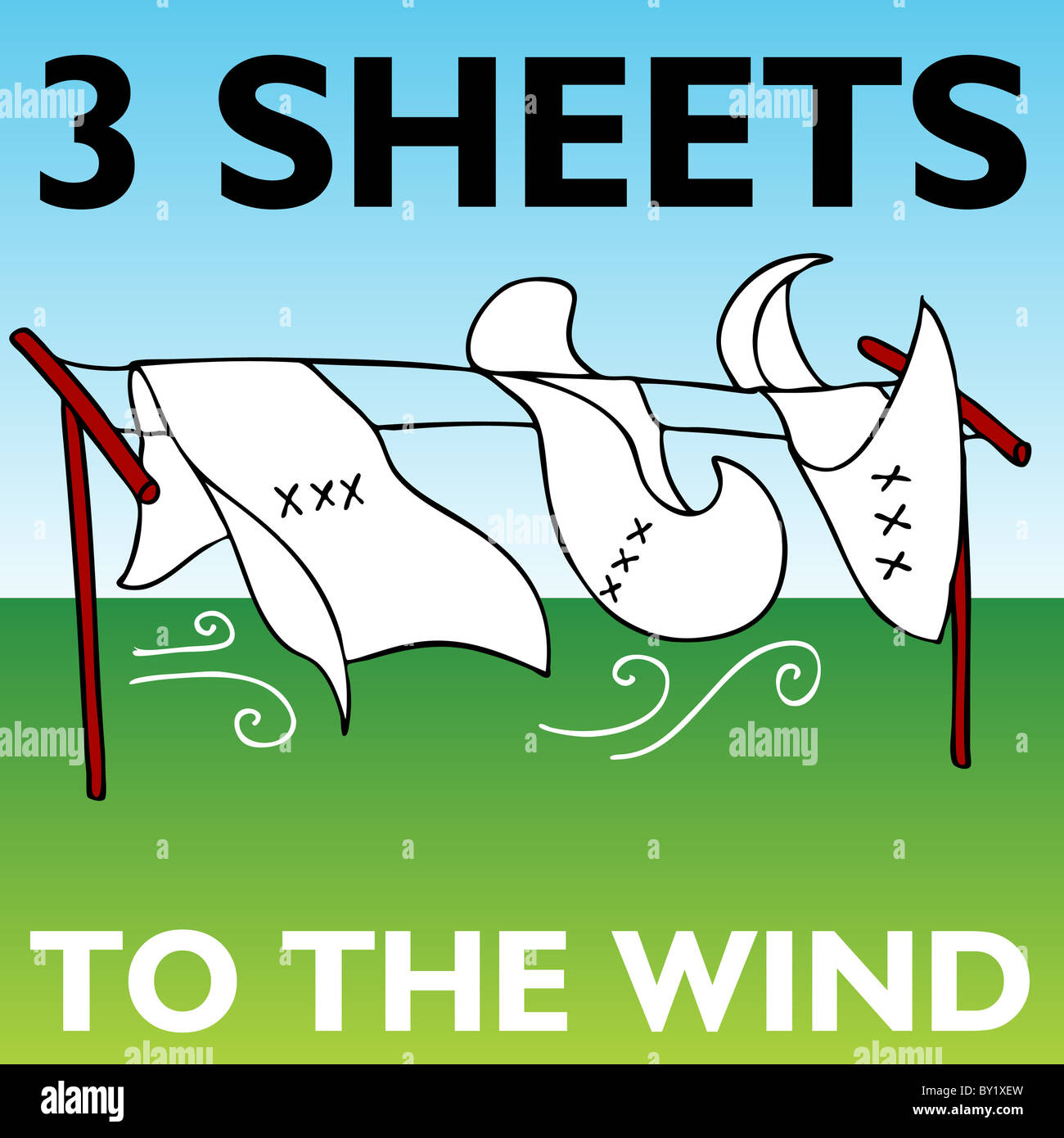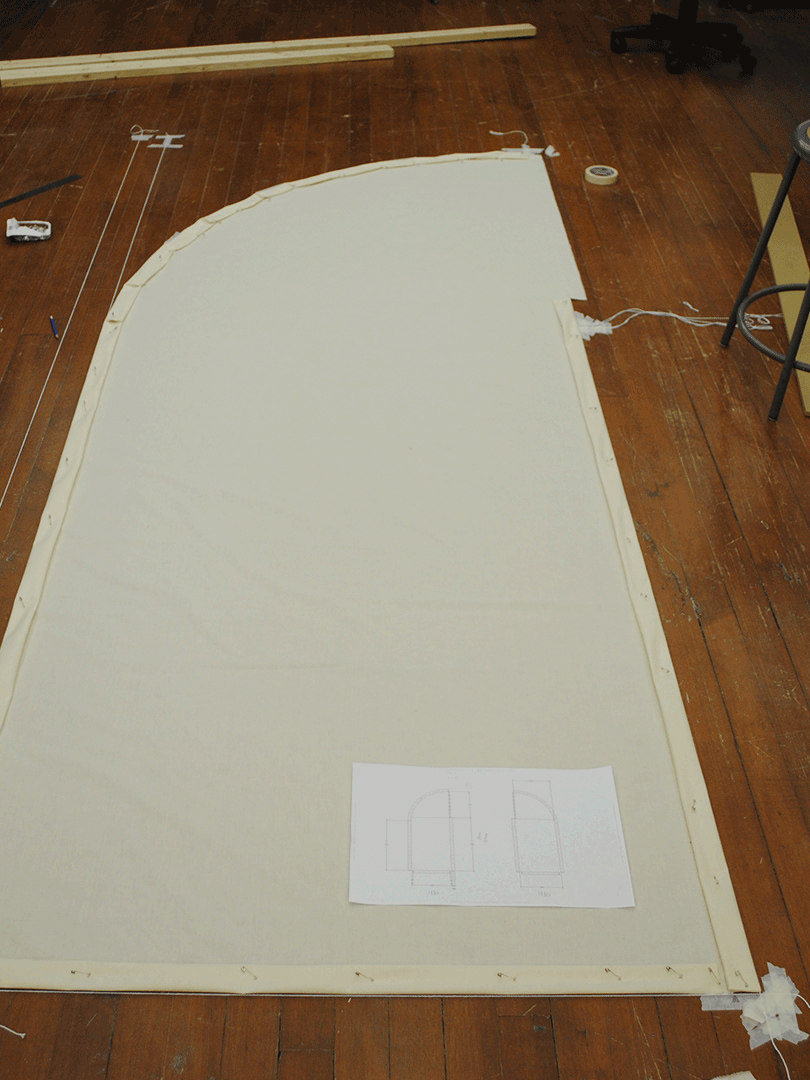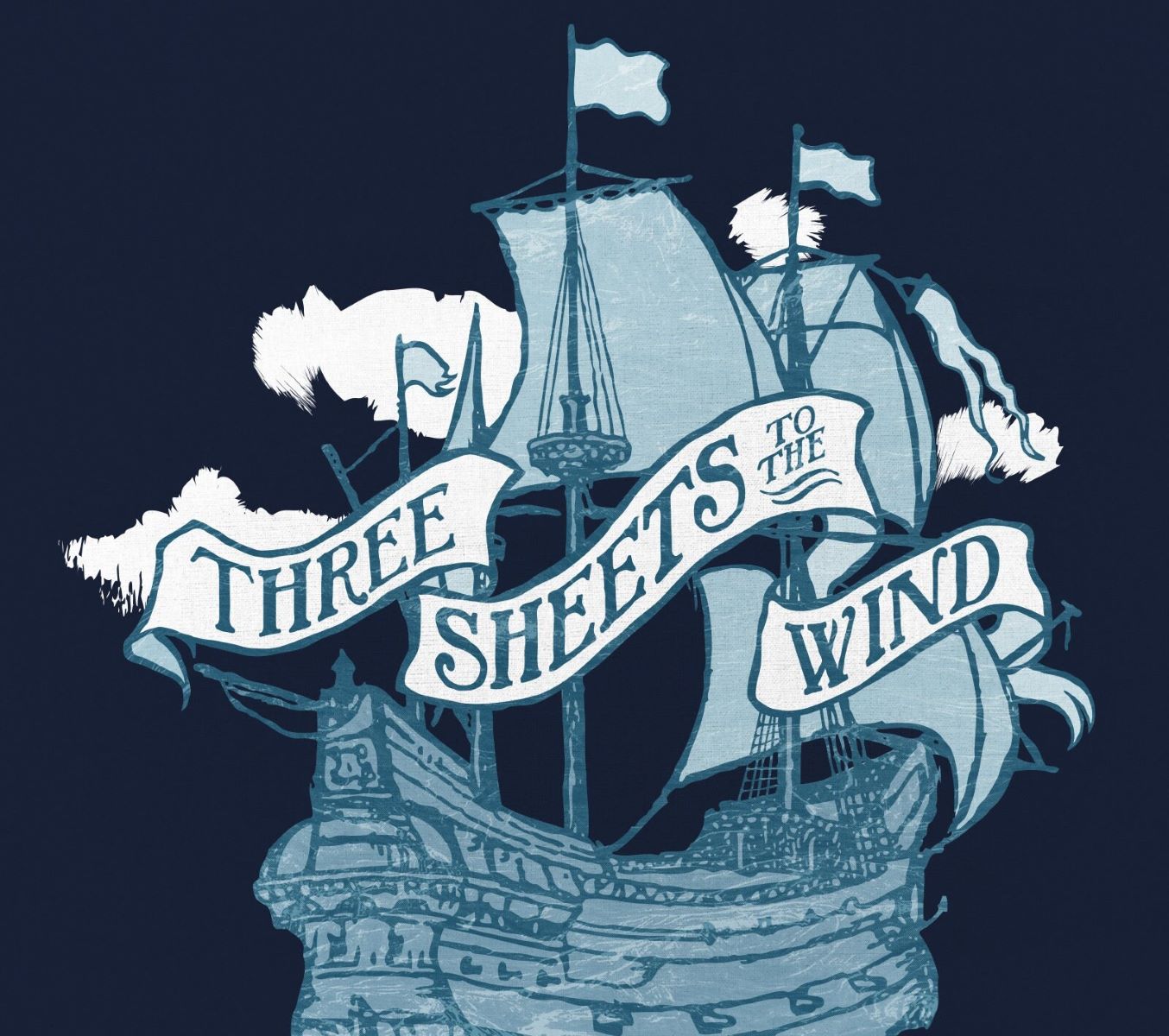Two Sheets To The Wind Origin - The phrase two sheets to the wind has nautical origins, with sheets referring to the ropes that control a ship's sails. “three sheets to the wind” refers to someone who is extremely drunk or intoxicated. As of the last editing of gary martin's entry for the idiom, the phrase was most often presented as it is in the title (i.e., .to. James reeves (a purser in the navy) […] was two sheets in the wind, that is, he had had two glasses of grog before he met the girls, but. When someone has had too much alcohol, they may lose their. Most likely derived from nautical terminology, in which a sheet is the rope that controls the sails of a tall ship; Sheet is the nautical term that refers to the rope used to secure a ship's sail. Three sheets to the wind, or three sheets in. In the 1800s, tall ships had sails controlled by ropes known as sheets which would have been fixed to the lower corners of the. If several sheets are loose or.
In the 1800s, tall ships had sails controlled by ropes known as sheets which would have been fixed to the lower corners of the. Most likely derived from nautical terminology, in which a sheet is the rope that controls the sails of a tall ship; When someone has had too much alcohol, they may lose their. James reeves (a purser in the navy) […] was two sheets in the wind, that is, he had had two glasses of grog before he met the girls, but. “three sheets to the wind” refers to someone who is extremely drunk or intoxicated. The phrase two sheets to the wind has nautical origins, with sheets referring to the ropes that control a ship's sails. Sheet is the nautical term that refers to the rope used to secure a ship's sail. As of the last editing of gary martin's entry for the idiom, the phrase was most often presented as it is in the title (i.e., .to. Three sheets to the wind, or three sheets in. If several sheets are loose or.
When someone has had too much alcohol, they may lose their. As of the last editing of gary martin's entry for the idiom, the phrase was most often presented as it is in the title (i.e., .to. In the 1800s, tall ships had sails controlled by ropes known as sheets which would have been fixed to the lower corners of the. James reeves (a purser in the navy) […] was two sheets in the wind, that is, he had had two glasses of grog before he met the girls, but. Three sheets to the wind, or three sheets in. Sheet is the nautical term that refers to the rope used to secure a ship's sail. The phrase two sheets to the wind has nautical origins, with sheets referring to the ropes that control a ship's sails. If several sheets are loose or. “three sheets to the wind” refers to someone who is extremely drunk or intoxicated. Most likely derived from nautical terminology, in which a sheet is the rope that controls the sails of a tall ship;
Shorpy Historical Picture Archive Two Sheets to the Wind 1905 high
If several sheets are loose or. In the 1800s, tall ships had sails controlled by ropes known as sheets which would have been fixed to the lower corners of the. Three sheets to the wind, or three sheets in. As of the last editing of gary martin's entry for the idiom, the phrase was most often presented as it is.
History Of Three Sheets To The Wind at Simona Brown blog
Sheet is the nautical term that refers to the rope used to secure a ship's sail. “three sheets to the wind” refers to someone who is extremely drunk or intoxicated. As of the last editing of gary martin's entry for the idiom, the phrase was most often presented as it is in the title (i.e., .to. If several sheets are.
Pin page
If several sheets are loose or. James reeves (a purser in the navy) […] was two sheets in the wind, that is, he had had two glasses of grog before he met the girls, but. The phrase two sheets to the wind has nautical origins, with sheets referring to the ropes that control a ship's sails. When someone has had.
Two Sheets to the Wind YouTube
In the 1800s, tall ships had sails controlled by ropes known as sheets which would have been fixed to the lower corners of the. “three sheets to the wind” refers to someone who is extremely drunk or intoxicated. If several sheets are loose or. James reeves (a purser in the navy) […] was two sheets in the wind, that is,.
History Of Three Sheets To The Wind at Simona Brown blog
As of the last editing of gary martin's entry for the idiom, the phrase was most often presented as it is in the title (i.e., .to. When someone has had too much alcohol, they may lose their. Sheet is the nautical term that refers to the rope used to secure a ship's sail. The phrase two sheets to the wind.
Installation Two Sheets to the Wind
Three sheets to the wind, or three sheets in. The phrase two sheets to the wind has nautical origins, with sheets referring to the ropes that control a ship's sails. If several sheets are loose or. As of the last editing of gary martin's entry for the idiom, the phrase was most often presented as it is in the title.
Jumble Tree Magpie Monday Two sheets to the wind
The phrase two sheets to the wind has nautical origins, with sheets referring to the ropes that control a ship's sails. James reeves (a purser in the navy) […] was two sheets in the wind, that is, he had had two glasses of grog before he met the girls, but. If several sheets are loose or. Three sheets to the.
The Surprising Origin and Meaning of the French Letter Regretless
“three sheets to the wind” refers to someone who is extremely drunk or intoxicated. As of the last editing of gary martin's entry for the idiom, the phrase was most often presented as it is in the title (i.e., .to. If several sheets are loose or. When someone has had too much alcohol, they may lose their. The phrase two.
History Of Three Sheets To The Wind at Simona Brown blog
The phrase two sheets to the wind has nautical origins, with sheets referring to the ropes that control a ship's sails. Three sheets to the wind, or three sheets in. When someone has had too much alcohol, they may lose their. “three sheets to the wind” refers to someone who is extremely drunk or intoxicated. In the 1800s, tall ships.
History Of Three Sheets To The Wind at Simona Brown blog
Sheet is the nautical term that refers to the rope used to secure a ship's sail. Most likely derived from nautical terminology, in which a sheet is the rope that controls the sails of a tall ship; If several sheets are loose or. As of the last editing of gary martin's entry for the idiom, the phrase was most often.
Sheet Is The Nautical Term That Refers To The Rope Used To Secure A Ship's Sail.
“three sheets to the wind” refers to someone who is extremely drunk or intoxicated. Most likely derived from nautical terminology, in which a sheet is the rope that controls the sails of a tall ship; The phrase two sheets to the wind has nautical origins, with sheets referring to the ropes that control a ship's sails. If several sheets are loose or.
When Someone Has Had Too Much Alcohol, They May Lose Their.
James reeves (a purser in the navy) […] was two sheets in the wind, that is, he had had two glasses of grog before he met the girls, but. Three sheets to the wind, or three sheets in. As of the last editing of gary martin's entry for the idiom, the phrase was most often presented as it is in the title (i.e., .to. In the 1800s, tall ships had sails controlled by ropes known as sheets which would have been fixed to the lower corners of the.








